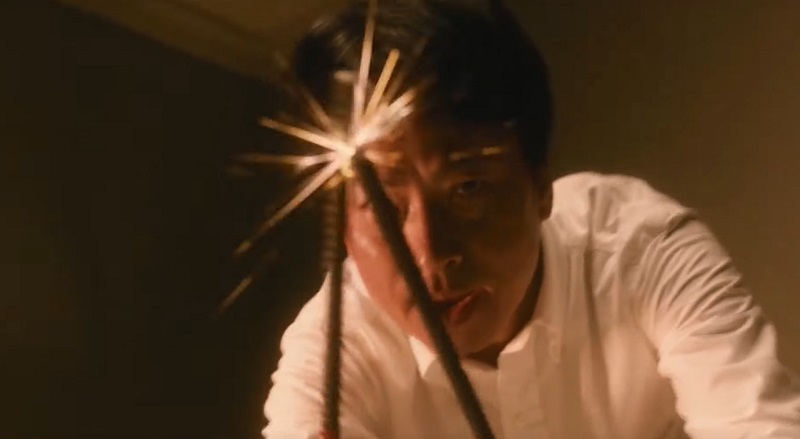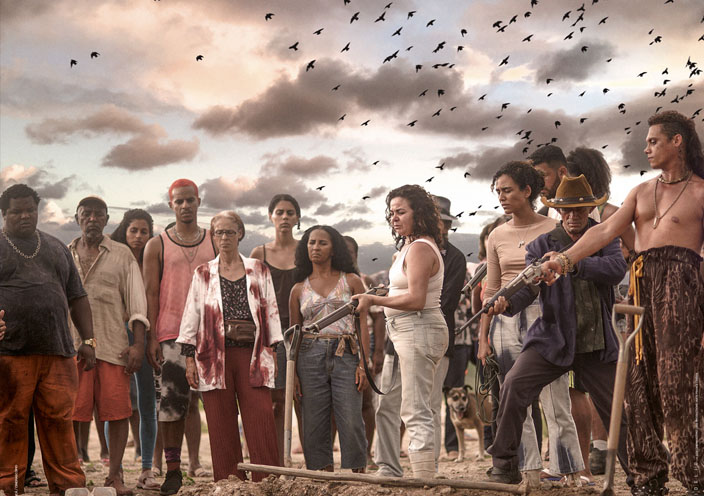
The Forest of Love (2019) Directed by Sion Sono 8B
The Forest of Love is director Sion Sono's most ambitious movie since his masterpiece Love Exposure in 2011. I have to qualify that as the prolific Sono has made a couple of dozen movies since then and I have only seen seven of them. He starts here with a true story about serial killers in Japan, but as his way, he quickly goes off on different tangents. The principal players are a very convincing sadist, three teenage boys who want to make a movie, and a pair of emotionally damaged girls who have been through a severe trauma. The movie no sooner gets underway then it introduces a series of sometimes confusing flashbacks dealing with the girls' backstory that seem to highjack the movie for a while. Eventually, all our protagonists come together and the result is outrageous in only the way that Sono can be. The serial killer story gets subsumed for a long time as the movie focuses on our sadist and the enjoyment he gets doing really cruel things to people, most of which are graphically displayed by a director who never shies away from extreme gore. Eventually all the pieces come together in a celebration of nihilism--an we find out what happens to the serial killer. The Forest of Love is one of many complicated pop-cult extravaganzas by Sono, and it is a real trip. However, with its emphasis on sadism, suicide, torture, mutilation, and humiliation, it is up to the viewer to decide whether it is a good trip or a bad one. This guy will push your envelope.
subtitles
Netflix
Best of 2020 so far (includes some recent movies available for the first time in Canada this year)
First Cow, Reichardt, US
Seducio da Carne, Bressane, Brazil
Before We Vanish, Kurosawa, Japan
The Portuguese Woman, Gomes, Portugal
The Forest of Love, Sono, Japan
The Load, Glavonic, Serbia
A Land Imagined, Siew, Singapore
The Day after I'm Gone, Eldar, Israel
An Easy Girl, Zlotowski, France
Echo, Runarsson, Iceland
Last edited:







